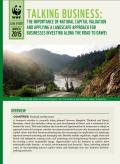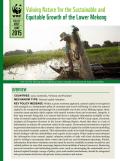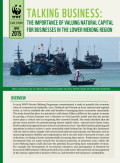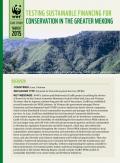



WWF’s Carbon and Biodiversity (CarBi) project is tackling the drivers of forest loss in the Central Annamite Mountains located within both Laos and Vietnam, one of the world’s biodiversity hot spots. This case study outlines the efforts of the CarBi project of developing sustainable financing mechanisms, specifically Payments for Forest Environmental Services (PFES) schemes, to support conservation interventions beyond the project lifetime. It concludes with a number of recommendations for the establishment of similar financing mechanisms throughout developing nations.
This case study reflects on a WWF Green Economy Modelling report conducted in 2013 ‘Green Economy Modelling of Ecosystem Services in the Dawna Tenasserim Landscape (DTL) along the ‘Road to Dawei’, which looked specifically at the sustainable transport infrastructure options within this landscape which straddles both Thailand and Myanmar. The case study provides a summary of the analysis and results from the report, including the projections generated up to 2035 that analyze the short, medium and longer-term consequences of road construction and from these, how a green economy approach over a business as usual approach is not only the most sustainable choice, but also the more economical choice in the long term, that helps healthy economies and societies to grow.
